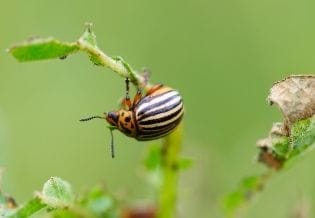About the International Journal of Entomology
A peer-reviewed, open access platform advancing entomological science through rigorous scholarship on insect ecology, systematics, behavior, and biodiversity conservation
IJEN publishes multidisciplinary research addressing fundamental and applied questions in entomology. Our scope encompasses ecological investigations, systematic classifications, behavioral studies, and conservation-oriented research that contributes to understanding insect diversity and ecological function.
Population structure, density-dependent processes, metapopulation dynamics, species distribution modeling, habitat associations, and ecological niche analyses.
Mating systems, foraging strategies, social organization, communication mechanisms, predator-prey interactions, and adaptive behavioral responses to environmental variation.
Taxonomic revisions, phylogenetic analyses, species descriptions, morphological characterizations, molecular systematics, and evolutionary relationships among arthropod lineages.
Threatened species assessments, habitat fragmentation impacts, biodiversity surveys, population viability analyses, conservation genetics, and restoration ecology.
Plant-insect relationships, pollination ecology, herbivory patterns, parasitoid dynamics, competition, mutualism, and community assembly processes.
Decomposition, nutrient cycling, energy flow, trophic interactions, ecosystem services provided by insects, and functional diversity assessments.
Integrated pest management from an ecological perspective, biological control agent ecology, invasive species dynamics, and agroecosystem entomology.
Climate change impacts, phenological shifts, range expansions, adaptation mechanisms, disturbance ecology, and biodiversity responses to anthropogenic stressors.
IJEN accepts diverse manuscript formats to accommodate the varied research outputs of the entomological community. Each submission undergoes rigorous peer review to ensure scientific validity, methodological soundness, and contribution to the field.
Original investigations presenting novel findings on insect ecology, behavior, systematics, or conservation. Articles should follow standard scientific structure: Introduction, Materials and Methods, Results, Discussion, and Conclusion.
Comprehensive syntheses of specific entomological topics, evaluating existing literature, identifying knowledge gaps, and proposing future research directions.
Structured reviews that follow rigorous protocols to identify, appraise, and synthesize evidence on focused entomological questions, including meta-analytic approaches where appropriate.
Brief reports of significant findings, new species records, range extensions, or methodological innovations that warrant rapid dissemination.
Detailed analyses of specific ecological phenomena, conservation challenges, or population dynamics that provide valuable insights for broader applications.
Descriptions of novel or optimized methodologies, experimental protocols, sampling techniques, or analytical tools with clear application in entomological research.
Species descriptions, systematic revisions, identification keys, nomenclatural acts, and phylogenetic analyses adhering to ZooBank registration and taxonomic best practices.
Concise reports on equipment modifications, field techniques, laboratory procedures, or software tools that enhance entomological research capabilities.
Publications focused on data set documentation, biodiversity inventories, or first records of species in new geographic regions, emphasizing data accessibility and reproducibility.
Authoritative viewpoints on emerging trends, policy implications, or conceptual advances in entomology, often by invitation but unsolicited submissions are considered.
Evidence-informed personal perspectives on scientific, ethical, or societal issues relevant to entomological research and practice.
Critical evaluations of recently published books in entomology, ecology, systematics, or related fields that contribute to scholarly discourse.
IJEN maintains rigorous editorial standards through a single-blind peer review process conducted by expert entomologists worldwide. Our editorial board comprises distinguished practitioners in insect ecology, systematics, behavior, and conservation, ensuring that published research meets the highest standards of scientific quality.
- Expert reviewers with specialized knowledge in relevant entomological subdisciplines
- Rigorous assessment of experimental design, sampling methodology, and statistical analyses
- Evaluation of taxonomic accuracy, nomenclatural compliance, and systematic frameworks
- Emphasis on ecological interpretation, conservation implications, and theoretical contributions
- Constructive feedback to strengthen manuscripts and advance author development
- Ethical compliance verification including research permits, specimen repositories, and data sharing
Authors are invited to submit manuscripts following IJEN's comprehensive Instructions for Authors. All submissions must be in English and include structured abstracts, keywords, clear methodology descriptions, appropriate data presentation, and comprehensive reference lists.
- Rapid peer review (average 21 days to first decision) and fast publication timelines respecting researchers' professional needs
- Global open access ensuring maximum visibility and citation potential
- International editorial board providing diverse expertise and geographical representation
- Comprehensive coverage spanning experimental, systematic, and applied entomology
- Support for data sharing, reproducibility, and transparent research practices
- Promotion of innovative research advancing entomological science and conservation
- Constructive review process fostering scholarly dialogue and manuscript improvement
- Indexing across major scientific databases enhancing discoverability
Editorial Leadership
Expert Guidance from Distinguished Entomologists
IJEN's editorial board brings together leading researchers in insect ecology, systematics, conservation biology, and behavioral science. Our editors are committed to maintaining scholarly integrity, promoting methodological excellence, and fostering a collaborative environment that welcomes diverse perspectives and innovative approaches to entomological research.
IJEN operates under a Gold Open Access model, making all published research immediately and freely available worldwide. Articles are licensed under Creative Commons Attribution (CC BY 4.0), allowing unrestricted use, distribution, and reproduction with proper citation. This model eliminates access barriers, accelerates knowledge transfer, and maximizes the impact of entomological research on science, education, and conservation practice.
Authors retain copyright while granting IJEN publication rights. The journal's peer review standards ensure that open access does not compromise scientific quality. Our commitment to transparency extends to editorial processes, reviewer guidelines, and publication ethics aligned with international best practices. With an acceptance rate of 51%, IJEN maintains selectivity while supporting timely dissemination of high-quality research.
Advance Entomological Science with IJEN
Join the global community of researchers investigating insect ecology, biodiversity, and conservation. Submit your research to IJEN and contribute to advancing our understanding of arthropod biology and ecological significance. With rapid turnaround times—21 days to first decision and 3 days from acceptance to publication—IJEN supports timely dissemination of your findings.


